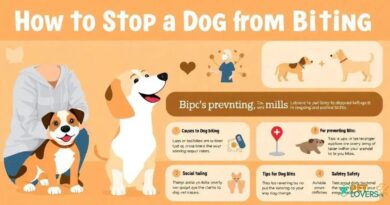What is Golden Years
What is Golden Years?
The term “Golden Years” refers to the later stages of a dog’s life, typically when they are considered seniors. This phase can vary depending on the breed, but generally, dogs are classified as seniors around the age of 7 years. During these years, dogs may experience various physical and behavioral changes that require special attention from their owners.
Understanding the Aging Process
As dogs age, their bodies undergo significant changes. These can include a decrease in energy levels, changes in metabolism, and the onset of age-related health issues. Owners should be aware of these changes and adjust their dog’s diet, exercise, and healthcare accordingly to ensure a comfortable and healthy life during their Golden Years.
Common Health Issues in Senior Dogs
Senior dogs are prone to various health problems, including arthritis, dental disease, and organ dysfunction. Regular veterinary check-ups become crucial during this stage to catch any potential issues early. Additionally, maintaining a healthy weight and providing joint supplements can help alleviate some of the discomfort associated with aging.
Nutritional Needs for Senior Dogs
Nutrition plays a vital role in the health of senior dogs. Their dietary needs often change, requiring lower calories but higher fiber to support digestion. Specialized senior dog food is available, formulated to meet these specific needs, ensuring that your furry friend receives the right balance of nutrients to thrive in their Golden Years.
Exercise and Activity Levels
While senior dogs may not have the same energy levels as they did in their youth, regular exercise is still essential. Gentle walks and playtime can help maintain their physical health and mental stimulation. It’s important to tailor the activity to their abilities, avoiding strenuous exercises that could lead to injury.
Behavioral Changes in Aging Dogs
As dogs age, they may exhibit changes in behavior, such as increased anxiety or changes in sleeping patterns. These shifts can be attributed to cognitive decline or discomfort from age-related health issues. Understanding these changes can help owners provide the necessary support and comfort to their aging companions.
Creating a Comfortable Environment
Providing a comfortable living environment is crucial for senior dogs. This can include orthopedic beds, easy access to food and water, and minimizing stairs or obstacles that could pose a risk. A stable and secure environment can significantly enhance the quality of life for dogs in their Golden Years.
Regular Veterinary Care
Routine veterinary visits are essential for senior dogs. These check-ups can help monitor their health, manage any existing conditions, and prevent new issues from arising. Vaccinations, dental care, and screenings for common age-related diseases should be part of their healthcare routine.
Emotional Support and Bonding
During their Golden Years, dogs benefit greatly from emotional support and bonding time with their owners. Spending quality time together, whether through gentle play, grooming, or simply cuddling, can strengthen the bond and provide comfort to aging dogs. This emotional connection is vital for their overall well-being.
Preparing for the Future
As difficult as it may be, preparing for the eventual passing of a senior dog is an important aspect of responsible pet ownership. Understanding the signs of end-of-life stages and discussing options with a veterinarian can help owners make informed decisions that prioritize their pet’s comfort and dignity during their final days.




